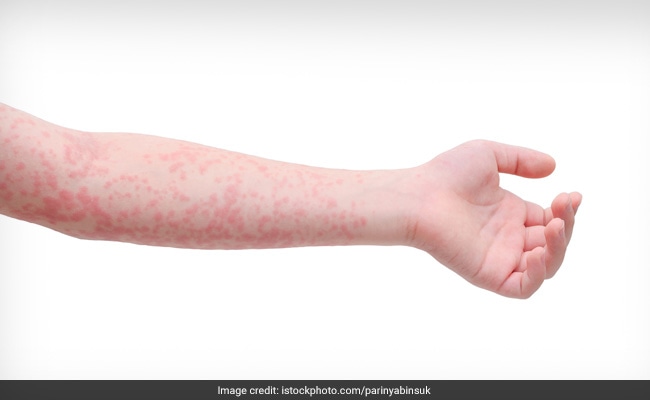

Symptoms usually start during the third trimester of pregnancy and often go away a few days after childbirth. Itching commonly occurs on the palms of the hands and soles of the feet, but it can also spread to the trunk of the body. The main symptom of ICP is severe itching in the absence of a rash. In ICP, this flow of bile is blocked and the components of bile are deposited in the skin. Bile travels from the liver to the small intestine, where it is used to break down fats in food. Bile is a substance that is made in the liver. ICP is the most common liver condition that happens during pregnancy.
#PINPOINT RED DOTS ON SKIN FLAT PROFESSIONAL#
Your health care professional may also give you medications to control the outbreak of blisters and help relieve your discomfort.

If your health care professional diagnoses pemphigoid gestationis after checking your blisters, you and your fetus should be monitored closely during the last part of pregnancy. These blisters are usually mild and go away within a few weeks. There is also a small chance that your baby will have similar blisters at the time of birth. There is a slightly increased risk of pregnancy problems with this condition, including preterm birth and a smaller-than-average baby. Sometimes the condition returns during future pregnancies. It is thought to be an autoimmune disorder. With this condition, blisters appear on the abdomen, and in severe cases, the blisters can cover a wide area of the body. Pemphigoid gestationis is a rare skin condition that usually starts during the second and third trimesters of pregnancy or sometimes right after childbirth. Together you can decide which option is best for you. If you are concerned about which products to use to treat your acne, talk with your dermatologist and ob-gyn.

Other retinoids can be found in some OTC products. Some retinoids are available by prescription. But it is generally recommended that use of these medications be avoided during pregnancy. Unlike isotretinoin, topical retinoids are applied to the skin, and the amount of medication absorbed by the body is low. Topical retinoids-These medications are a form of vitamin A and are in the same drug family as isotretinoin. Oral tetracyclines-This antibiotic can cause discoloration of the fetus’s teeth if it is taken after the fourth month of pregnancy and can affect the growth of the fetus's bones as long as the medication is taken. It may cause severe birth defects in fetuses, including intellectual disabilities, life-threatening heart and brain defects, and other physical deformities. Isotretinoin-This drug is a form of vitamin A. Their use during pregnancy is not recommended due to the risk of birth defects. Hormonal therapy-Several medications that block specific hormones can be used to treat acne. If you keep getting hives, you’ll want to go to an allergist to figure out what’s going on.Some prescription acne medications should not be used while you are pregnant: Once the hives go away, she adds, you can add those foods back slowly. Jaliman will also tell people to avoid certain foods that are more likely to cause hives, like shellfish and nuts. As for cortisone, you can get it at a low strength over the counter or a more potent version by prescription, she explains. She recommends taking the lowest dose of an antihistamine-like one meant for children-to avoid drowsiness.

Treatment: Hives can be treated with OTC antihistamines (think: Benadryl) and creams (think: cortisone), Jaliman says. You can learn more about this medical emergency here. Note: Hives can be a symptom of anaphylaxis, a severe and potentially life-threatening allergic reaction that requires a trip to the emergency room, according to Mayo Clinic. Why you have them: You may get hives if you’re reacting to a bee sting, a food, or a medication, Jaliman notes. What are they: These are red, swollen bumps that are part of an allergic reaction, Jaliman explains. Luckily, Women’s Health is here to help, with a handy guide detailing the different kinds of bumps you might find on your body, why the heck they’re showing up, and what kind of treatment you’ll want to seek out, if any. Meet our experts: Debra Jaliman, MD, author of Skin Rules: Trade Secrets From a Top New York Dermatologist, Joshua Zeichner, MD, director of cosmetic and clinical research at Mount Sinai Hospital, Tsippora Shainhouse, MD, a board-certified dermatologist in Beverly Hills Let a bump go rogue for too long and you could even be dealing with Dr. But there are a few odd lumps and bumps on your skin that, while not necessarily harmful, can be obnoxious to deal with. Of course, 99 percent of the time you know you're making a mountain out of a bug bite, so to speak. Google about that raised skin bump that popped up out of nowhere all of a sudden. Let's be real: You've definitely found yourself staying up late consulting Dr.


 0 kommentar(er)
0 kommentar(er)
